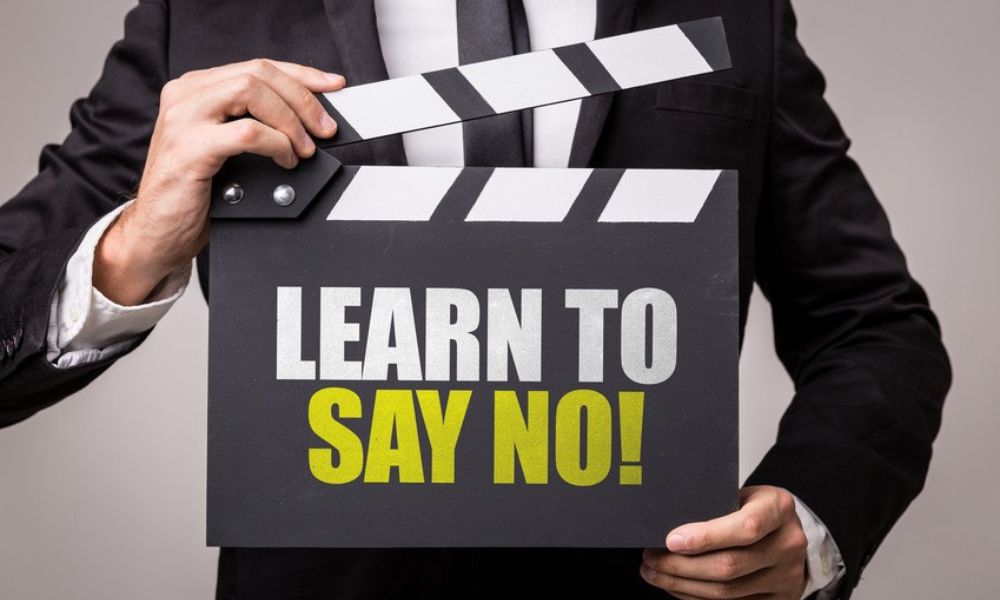The Art of Saying No: How Setting Boundaries Can Change Your Life
Introduction
We often say yes because of habit—because we want to please others, avoid conflict, or simply because it’s easier than saying no. But every time we agree to something that doesn’t serve us, we slowly lose a piece of our peace. Saying no is not being rude or selfish; it's about protecting your time, energy, and emotional well-being. It is a quiet form of self-respect that can change how you live, work, and connect with others.

Why We Battle to Say No?
We have likely all experienced that uncomfortable tension when someone asks for a favor and, even though all of our instincts tell us to say no, we somehow end up saying yes. Not because they actually want us to do it, but they don’t want us to disappoint them? Most of us have been raised to be nice, helpful, and agreeable, which makes saying no feel as if we’re breaking a rule that nobody has actually spoken aloud.
There is also the quiet fear in the background – “What if they think I’m selfish?” and “What if they don’t like me anymore?” As social creatures, we all want acceptance, and that craving may lead us to choose the discomfort of others over our own comfort and peace. Furthermore, guilt may creep in, as well; we tell ourselves we are too unreasonable, too selfish, or too sensitive even when we just cannot take any more.
Ultimately, this is not just a matter of saying no; it is about all the emotions that come with the word itself. It is about wanting to be viewed as “good,” “kind,” and “helpful.” When we do not allow ourselves to say no to situations or favors, we say no to ourselves – to our rest, to our priorities, and to our mental presence.
The Taken a toll of Continuously Saying Yes
At first, constantly saying yes may seem harmless, or even commendable! You feel helpful and needed and even a bit proud of just how many things you can accommodate. But little by little and without noticing it, you become depleted. Each time you say yes, a little more weight is placed on your shoulders until one day you exclaim, “I am exhausted!” You feel frustrated and apathetic, and when someone asks for help, you do not know why you feel so exhausted.
The hidden cost of saying yes all of the time is experiencing burnout. You have spread yourself too thin such that you have no energy to expend on things that actually feed you. You begin showing up to events through an obligation, rather than excitement. And once you’re in that position enough times, resentment begins to seep in. You feel unappreciated and unrecognized, and even come to resent yourself for not voicing your feelings sooner.
In time, this pattern begins to erode your sense of yourself. You forget what you like about yourself–what makes you feel happy, or calm, or inspired–because you have invested so much energy in catering to everyone’s needs before meeting your own. Saying yes becomes knee jerk and saying no feels uncomfortable. But the reality is that in order to please other people, you run the risk of quietly losing yourself in the process.

Practical Ideas for Establishing Healthy Boundaries
Setting a boundary is not required to feel rude or selfish – it is truly about honoring your own needs while being sensitive to the needs of others. Start small. It could be as simple as saying no to a weekend plan if you need rest or politely telling a friend you do not have time to help.
Give yourself permission to pause before responding. A mere moment allows you to check in with your own needs instead of instinctively saying yes. Practice saying no out loud, even in a conversation with yourself, to prepare for upcoming conversations in life. Know that boundaries are not walls – they are a way for you to show up fully for the things and people you want to show up for without overextending yourself.
How No Is a Catalyst for Personal Growth
Saying no is not just a way to protect your time — it represents when you say no to others, you create time, space, to think, to be creative, to honor your heart, to make things that are important to you. You become more aware of yourself, your needs, and your values, and you act with more confidence because you’re making choices rather than going through the motions.
Saying no also builds better relationships. When people see you value yourself, they value you more, and your conversations develop into a more intimate, authentic, and meaningful connection. Every time you say no, you’re releasing the need to people-please, and it’s a small but powerful step toward a more calm, focused, and fulfilled life. A life where you can give your best without losing yourself in the commitment of it all.
Conclusion
To say no doesn’t make you a difficult person. It is simply an acknowledgment of your time, energy and peace of mind. Healthy boundaries protect you from burnout, enhance your relationships and create an opportunity to do what is really important. Every yes, every no, is a yes to yourself, your growth and your well-being. Learning this skill may be quiet but it can powerfully change the way you live.
